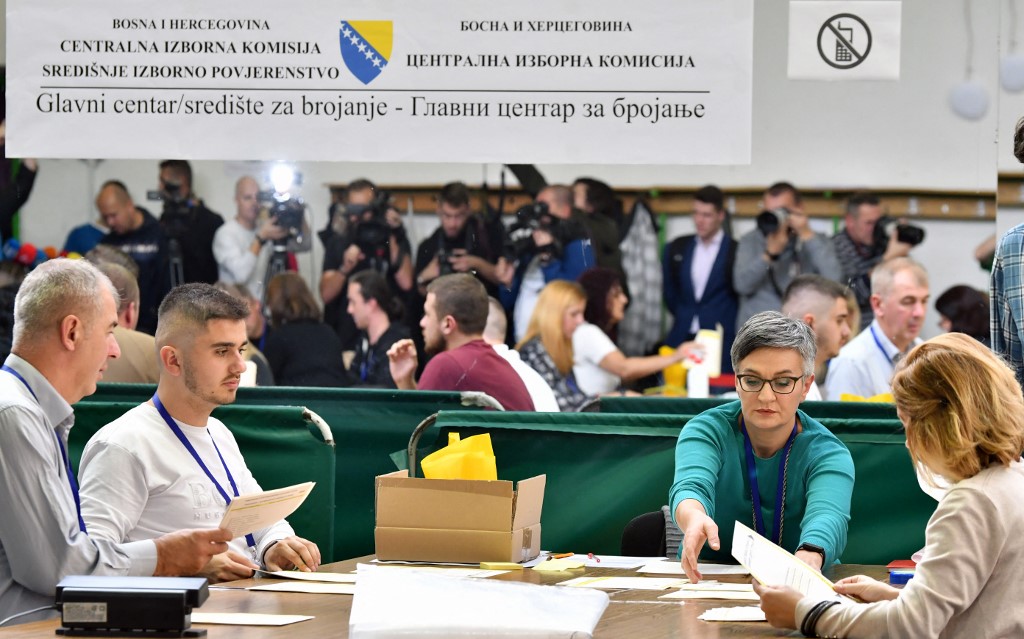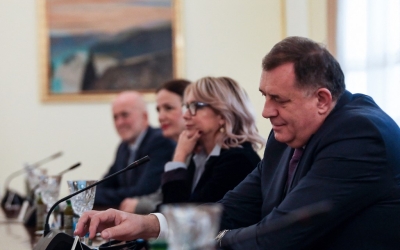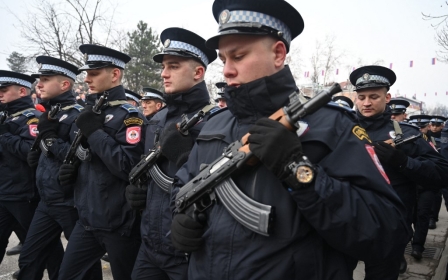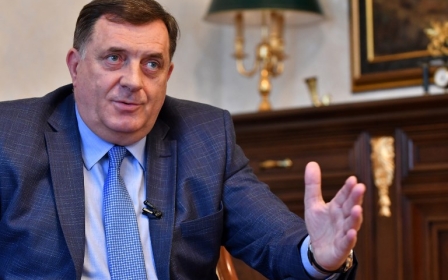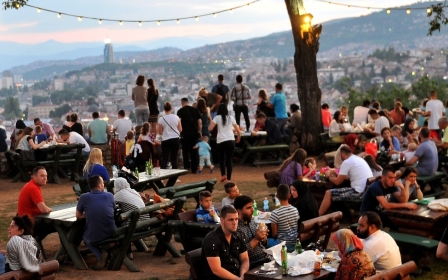How Bosnia and Herzegovina is enshrining discrimination
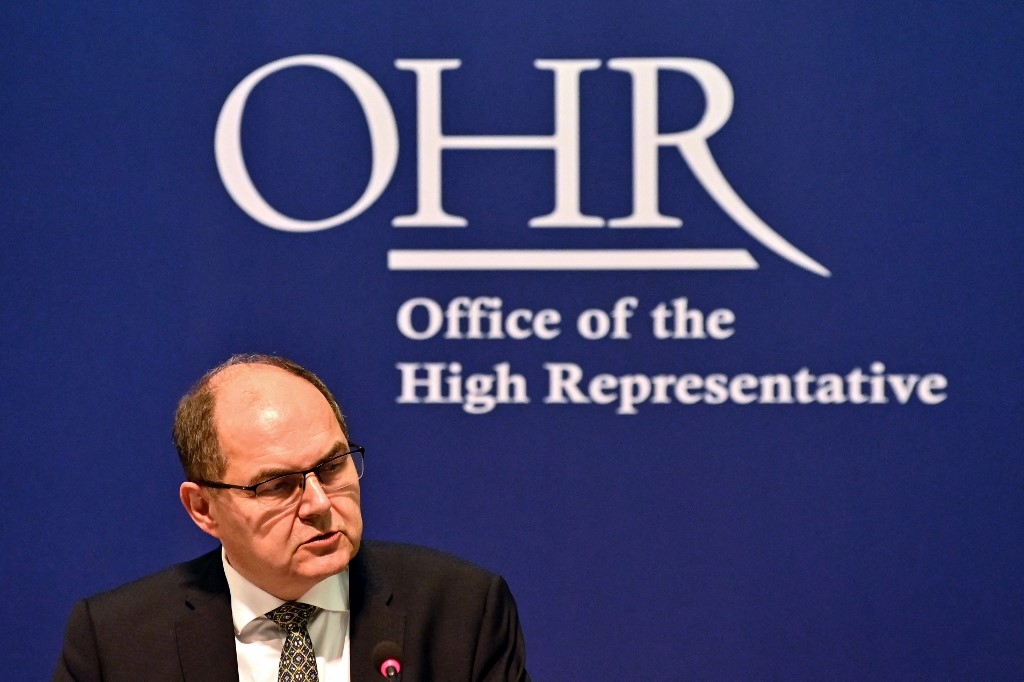
General elections were held in Bosnia and Herzegovina on 2 October in an atmosphere of high political tensions. As the votes were still being counted, the country’s high representative, Christian Schmidt, a German conservative politician appointed by the European Council in August 2021, imposed changes to the electoral law and the Constitution of the Federation of Bosnia and Herzegovina, one of the nation’s two main administrative units. Critics called the move a “slap in the face of voters” and an “illiberal putsch attempt” that could undermine Bosnian democracy.
The Bosnian Constitution is an integral part of the Dayton Accords, which ended the 1992-95 war but created a complex power-sharing system that distributes high-level government positions among the country’s three major ethnic groups: Bosniaks, Croats and Serbs. The system disenfranchises all national minority groups as “Others” who are ineligible for Bosnia and Herzegovina’s tripartite presidency, or for representation in its upper house of parliament, the House of Peoples.
Schmidt's latest decision further empowers forces that are holding the country back
The Dayton Accords also divided the country into two autonomous entities: the Federation of Bosnia and Herzegovina, shared by Bosniaks and Croats, and the majority-Serb Republika Srpska, each with its own government and parliament. According to the constitution, only Serbs from Republika Srpska can run for the Serbian seat on the state presidency, and only candidates from the Bosniak-Croat entity can fill the Bosniak and Croat seats.
These constitutional provisions have been challenged before the European Court of Human Rights (ECHR), where two prominent members of Bosnia’s Roma and Jewish communities in 2006 complained of their ineligibility to stand for election on the basis of their ethnic origin.
In 2009, the court found in their favour and directed Bosnia to change its constitution, warning that its failure to do so would present a stumbling block on its path towards joining the European Union. Other applicants have brought charges highlighting the discriminatory provisions of the constitution, but none of the associated rulings have been implemented.
New MEE newsletter: Jerusalem Dispatch
Sign up to get the latest insights and analysis on Israel-Palestine, alongside Turkey Unpacked and other MEE newsletters
Instead of addressing these issues, Schmidt used his powers to impose amendments that will deepen ethnic and ethnoterritorial divisions within the system. He did so in a non-transparent manner and against the clearly stated will of the people, who protested against his previously proposed changes in July.
Consolidating power
According to Schmidt’s July proposal, in districts with low percentages of one of the main ethnic groups, the political seat allocated for that group would move to a district with a higher percentage of people of that ethnicity, further consolidating the power of the ruling ethno-nationalist parties and giving mono-ethnic enclaves outsized power. In calling for the protests, Roma leader Dervo Sejdic noted: “If we, the citizens of Bosnia and Herzegovina now, are not united by Schmidt … in the fight against fascism and racism, no one else will.”
Schmidt ultimately relented and imposed only technical amendments to the nation’s electoral law, while issuing an ultimatum to the major Bosnian political parties to make broader changes.
Schmidt uses the same rhetoric on the election law as Dragan Covic, president of the nationalist Croatian Democratic Union of Bosnia and Herzegovina (HDZ BiH), asserting that Croats are insufficiently represented in the “complicated state structures” and “must be given the opportunity to feel represented” to avoid a potential electoral boycott among the community. Croat voters are, in fact, overrepresented, with only nine percent of votes in the Federation of Bosnia and Herzegovina and close to a third of the government.
The newly imposed changes to Bosnia’s election law and the federation’s constitution, which have changed the formula for the appointment of delegates to the upper chamber, will give the HDZ BiH extreme power, allowing it to hold up virtually all legislation. Schmidt has thus rewarded the party’s past obstructionism. Under the new formula, the number of seats in each constituent people’s caucus increases from 17 to 23.
Analysts say this change achieves the same result as the July proposal, giving the HDZ BiH an outsized role.
Ethnic representation
Schmidt ultimately maintained the same provisions that Bosnia’s own constitutional court found to be inconsistent with the European Convention on Human Rights. His stated intent to improve government functionality was not ensured by the new changes, which only empowered the HDZ BiH, a party that has served as a guardian of Russian interests in the Balkans.
“Russia creates a balance of power in the world and plays an important role in the Balkans … but unfortunately has little influence in Bosnia and Herzegovina,” Covic told the Rossiyskaya Gazeta in 2020. He and most HDZ BiH delegates in the upper chamber have voted against Bosnia’s alignment with EU sanctions on Russia, along with the delegates from Republika Srpska.
In August, during a visit to Gorazde, Schmidt had an angry outburst when he was asked by a journalist to respond to criticisms of his statements regarding the lack of representation of Croats and his intent to change that. Interestingly, Gorazde is the town to which part of my family and I fled in 1992, escaping genocidal violence in my hometown of Visegrad. Then, Serb forces also used arguments about “ethnic representation” and decided that the majority of Muslims, at 63 percent of the population, was unacceptable, launching a vicious ethnic cleansing campaign.
Schmidt’s latest decision further empowers forces that are holding the country back. With policies like this, the future for Bosnia and Herzegovina looks increasingly bleak.
The views expressed in this article belong to the author and do not necessarily reflect the editorial policy of Middle East Eye.
Middle East Eye delivers independent and unrivalled coverage and analysis of the Middle East, North Africa and beyond. To learn more about republishing this content and the associated fees, please fill out this form. More about MEE can be found here.



